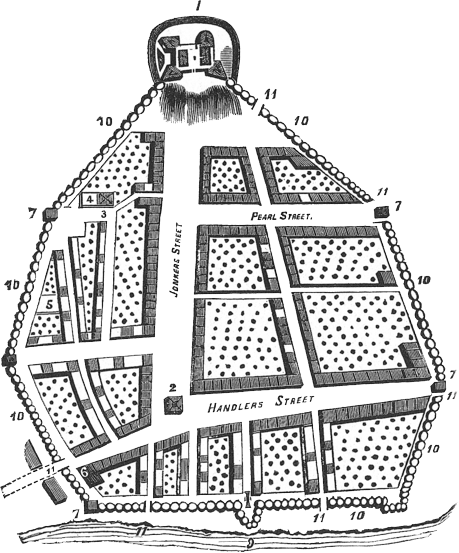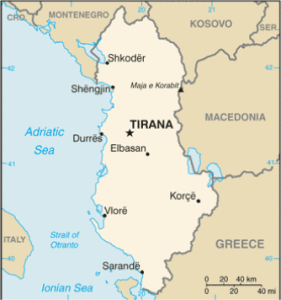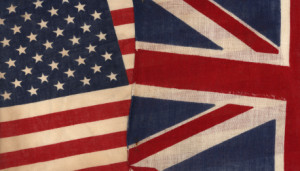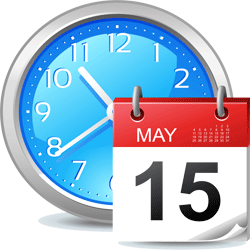Welcome to Part 2 of my 2-post series on how I am using ideas from the American Revolution Reborn Conference to rethink and improve my scholarship. (Click here for Part 1)
Before the conference I had not explicitly thought of the War for Independence as a civil war. My primary sources portrayed the war as a complex and messy event that I could not fully articulate. Today I am confident that I can explain what happened because the civil-war viewpoint has provided me with a better understanding of how Albanians experienced the war.
Albany's Revolution proved a messy and complicated affair. In my dissertation I unwittingly tried to fit many Albanians in to the black-and-white categories of patriot, loyalist, and neutral. Yet, few Albanians fit neatly into these categories. Post-conference me is no longer sure that Albany stood as the patriot stronghold that I portrayed it to be. The Minutes of the Committee for Detecting and Defeating Conspiracies and the Albany Committee of Safety reflect that few people from the City of Albany came before either board for disaffection. The Albanians offered their city for the patriots’ use, but does their offer mean they overwhelmingly supported the cause?
Today, I think it is more likely that the Albanians seized the opportunity to choose their occupiers. Both armies coveted Albany's riparian position because it afforded the ability to move troops and supplies efficiently in all cardinal directions via the Hudson and Mohawk Rivers. The Albanians knew full well that one army would claim their city. Regardless of patriot, loyalist, or neutral leanings, the majority of Albanians had soured on the British Army, which had treated them badly and left their city in near ruin after the French and Indian War. Perhaps disenchantment more than patriotism explains why Albany embraced the patriot army.
It seemed to me that several conference participants used physical acts of violence and fear of violence as interchangeable concepts. The Albanians knew what violence looked like and lived in fear of it. Albanians saw the effects of violence every time a patriot or loyalist band sacked or looted a nearby settlement or the frequent line of batteaus and wagons unloaded the patriot sick and wounded for care in their hospital. Still the Albanians experienced more fear of violence than physical acts of violence. This differentiation seems worth making as it would have made the Albanians' Revolutionary experience different from that of other communities.
The Albanians lived in fear that John Burgoyne might be the first to conquer their city by arms. When his arrival seemed imminent many Albanians sent their wives and children to stay with friends and relatives near Poughkeepsie, New York and in Western Massachusetts. They also lived in fear of loyalist attack. The Committee of Safety quashed at least 1 plot to set fire to vital military stores.
However, aside from those who enlisted as soldiers or served in the militia, Albanians seemed to have inflicted physical violence on others only during their Revolutionary protests. On suspicion that Henry Van Schaack had applied to be stamp collector, Sons of Liberty sacked his house, set fire to his carriage, and made physical threats against his person until he publicly declared that he would never accept the post.
Judith Van Buskirk commented that scholars need to look at the various types of power exercised during the Revolution. This suggestion led me to think about the different ways Albanians used power. The men on the Committee of Safety and the Commissioners for Detecting Conspiracies used peer pressure, threats, imprisonment, and military force to coerce dissenters into behaving in an appropriately patriotic manner.
Many of the men who served on these boards had seized the opportunity provided by the social chaos to claim a share of local and state power unavailable to them before the Revolution. Men like shoemaker-turned-lawyer-turned-politician Abraham Yates Jr. obtained positions such as the Chairman of the Committee of Safety and representative to the Provincial Congress. Later Yates would go on to hold several New York State offices.
Still, other Albanians such as Philip Schuyler supported the war effort as an opportunity to keep his community and way of life in tact. Men like Schuyler had to participate in the movement in order to check the ambitions of upstarts like Yates.
I need to think more about how the Revolution affected the power of Albany women and slaves.
 Conclusions
Conclusions
Like many historians, I attend conferences to hear about new ideas and scholarship, to meet new people, and to catch up with friends. The Rev Reborn conference proved successful on all fronts.
I gained ideas for how to re-think phenomena I had seen in my research but could not fully articulate. My biggest takeaway from the conference was a heightened awareness of the messiness of the Revolution and its War for Independence. I realize now that I had unintentionally tried to neaten Albany's revolutionary story. But now, post-conference me is fully ready to embrace the complexities of the Albanians' ordeal and as a result I will be able to craft a better narrative of their experiences as I revise my dissertation into a book.
For me American Revolution Reborn was one of, if not, the best conference I have attended. What has been your best conference experience? What did you experience or learn at the conference that made it the best?
 As a historian, I am interested in how people understand and interact with the past. I find the question of how present-day Americans relate to the American Revolution and War for Independence particularly fascinating. This curiosity led me to explore the 32nd Annual Boston Harborfest, the largest Fourth of July celebration in the United States.
As a historian, I am interested in how people understand and interact with the past. I find the question of how present-day Americans relate to the American Revolution and War for Independence particularly fascinating. This curiosity led me to explore the 32nd Annual Boston Harborfest, the largest Fourth of July celebration in the United States. On Tuesday July 2, I attended “Whispers of Revolution: Plotting the Boston Tea Party” at the Old South Meeting House. Faneuil Hall hosted most public meetings in colonial Boston, but when the crowd outgrew its hall they repaired to the Meeting House.
On Tuesday July 2, I attended “Whispers of Revolution: Plotting the Boston Tea Party” at the Old South Meeting House. Faneuil Hall hosted most public meetings in colonial Boston, but when the crowd outgrew its hall they repaired to the Meeting House.










